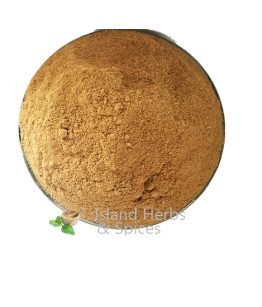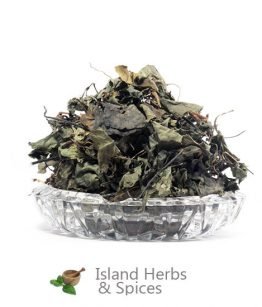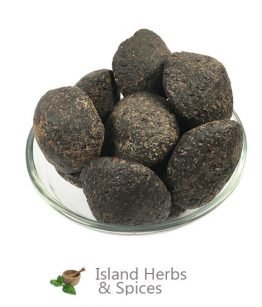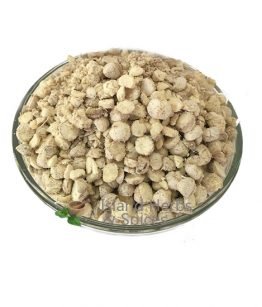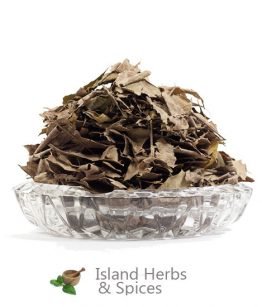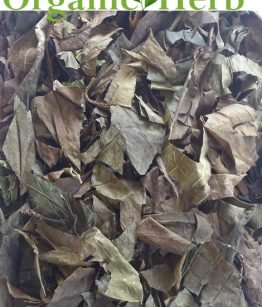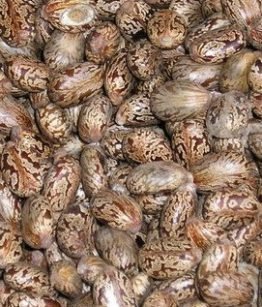Insulin Plant – Costus Igneus
The Insulin Plant, scientifically known as Costus igneus, is a medicinal plant primarily found in Southeast Asia, particularly India and Thailand. It can also be found in countries with similar tropical and subtropical climates. It is known for its unique ability to lower blood glucose levels, which has led to its common name, “Insulin Plant.” The Insulin Plant is a perennial herbaceous plant that belongs to the Costaceae family. It typically grows to 1 to 2 meters (3 to 6 feet) and has a clump-forming habit. The plant has attractive lance-shaped leaves approximately 15 to 20 centimeters (6 to 8 inches) long and 3 to 5 centimeters (1 to 2 inches) wide. The leaves are bright green with distinctive reddish veins, giving them an ornamental appearance.
Health Benefits of the Plant
Anti-Diabetic Effects: The primary medicinal property of the Insulin Plant is its ability to lower blood glucose levels. The leaves of the plant contain bioactive compounds that mimic the action of insulin, a hormone responsible for regulating blood sugar levels. These compounds help facilitate the entry of glucose into cells, thus reducing blood glucose levels. It is commonly used in traditional medicine as an adjunct therapy for managing diabetes.
Antioxidant Activity: The Insulin Plant exhibits antioxidant properties, which help neutralize harmful free radicals in the body. Antioxidants are vital in protecting cells from oxidative damage and preventing chronic diseases.
Anti-Inflammatory Effects: The plant has anti-inflammatory properties, which help alleviate inflammation-related conditions and promote overall well-being.
Anti-Hyperlipidemic Effects: Some studies suggest that the Insulin Plant benefits lipid metabolism, lowering elevated lipid levels, such as cholesterol and triglycerides.
Traditional Uses
Apart from its anti-diabetic properties, the Insulin Plant has been traditionally used to treat various ailments, including:
Asthma and bronchitis: The plant has bronchodilator properties that help alleviate respiratory conditions.
Rheumatism and joint pain: It relieves pain and inflammation associated with rheumatism and arthritis.
Skin disorders: The leaves of the Insulin Plant are sometimes used externally to treat skin conditions like eczema and dermatitis.
How to Use the Herb (Preparation and Administration)
The Insulin Plant can be consumed in different forms, including:
Raw leaves: The fresh leaves of the Insulin Plant can be consumed directly. Ensure that the leaves are thoroughly washed before chewing them. Some people prefer to chew a few leaves on an empty stomach in the morning.
Herbal tea or infusion: The Insulin Plant leaves can be used to make an herbal tea or infusion. Here’s how you can prepare it:
- Take a handful of fresh or dried Insulin Plant leaves.
- Boil a cup of water.
- Add the leaves to the boiling water and let it simmer for 10-15 minutes.
- Remove from heat, strain the tea, and let it cool slightly.
- You can drink the tea warm or at room temperature. If desired, you can sweeten it with a natural sweetener like stevia.
Powdered Form: The dried leaves of the Insulin Plant can be powdered and used as a supplement or added to foods and beverages. You can grind the dried leaves in a grinder or mortar and pestle to obtain a fine powder. The powdered form can be added to smoothies or juices or sprinkled over food. This herb is available and affordable in powder form at Island Herb and Spices, where we specialize in medicinal plants.
Extracts and Capsules: The Insulin Plant extracts and capsules are available in some markets. These products provide a concentrated form of the herb and offer convenience in dosage.
Precautions
While the Insulin Plant is generally considered safe for consumption, it is essential to exercise caution and consider the following precautions:
- If you have diabetes or other health conditions, consult your healthcare provider before incorporating the Insulin Plant into your routine. It should not be used as a replacement for prescribed diabetes medication without medical supervision.
- Pregnant or breastfeeding women should consult a healthcare professional before using the herb.
- Like any herbal remedy, some individuals may experience allergies or adverse reactions. If you notice any unusual symptoms, discontinue use and seek medical attention.
Conclusion
Given the appropriate climatic conditions, the Insulin Plant can be cultivated in both pots and gardens. It is important to note that the dosage and administration of the Insulin Plant may vary depending on individual circumstances. It is advisable to consult with a healthcare professional or herbalist for proper guidance and dosage recommendations.
NOTE: We highly recommend that before using any herbal medications you should consult your health care provider or medical doctor for professional advice.
Disclaimer: All herbs and spices listed on http://islandherbsandspices.com/ or sold for medical and household use only, again we advice that before using any HERBS for medical purposes, please consult your physician.



